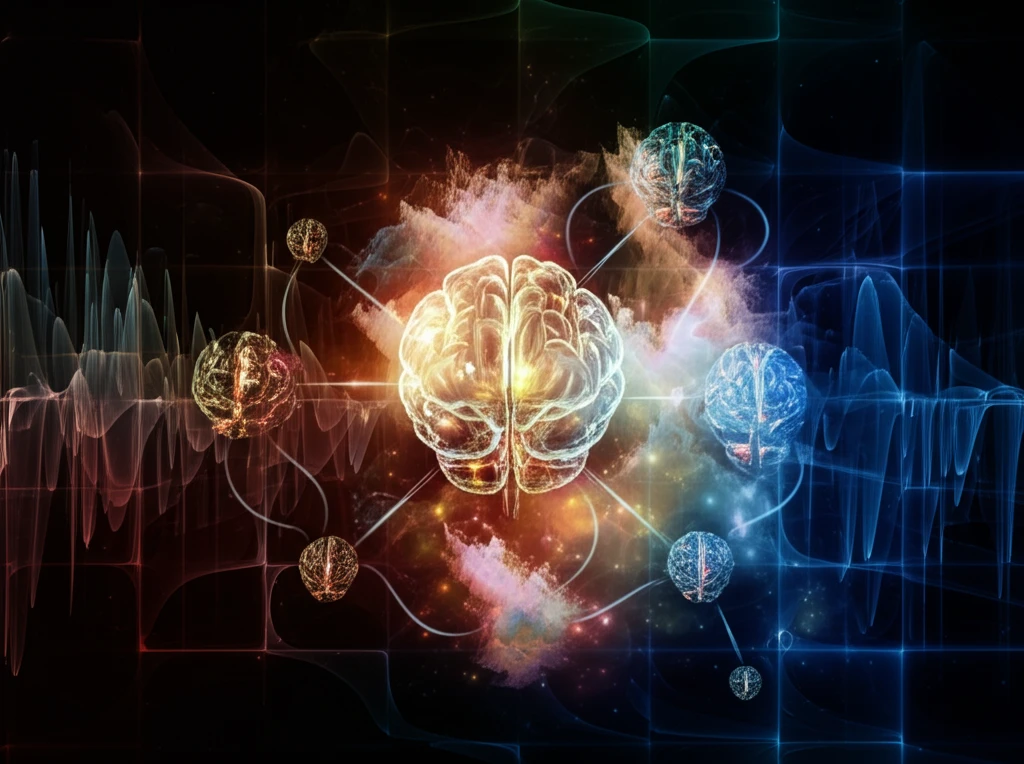
Decoding Social Intelligence: How Agent-Based Modeling Can Revolutionize Our Understanding of Collective Behavior
"Unlock the secrets of social dynamics with the SOSIEL platform: A new frontier in cognitive architecture and multi-agent systems"
In an increasingly complex world, understanding the dynamics of social systems is more critical than ever. From predicting the spread of misinformation to designing effective climate change policies, the ability to model and simulate human behavior offers a powerful tool for decision-making. Traditional approaches, however, often fall short of capturing the richness and nuance of real-world social interactions.
Enter agent-based modeling (ABM), a computational approach that simulates the actions and interactions of autonomous agents to understand the behavior of a system as a whole. By creating virtual worlds populated with agents that mimic human decision-making, ABM allows researchers to explore complex social phenomena in a controlled and experimental setting.
This is where the Self-Organizing Social & Inductive Evolutionary Learning (SOSIEL) Platform comes into play. SOSIEL represents a significant advancement in ABM, empowering agents with cognitive architectures that incorporate knowledge, learning, and social interaction. Designed as an open-source platform, SOSIEL is poised to revolutionize the way we model and understand social systems.
What Makes SOSIEL a Game-Changer in Social Simulation?

The SOSIEL Platform distinguishes itself through several key features that address the limitations of traditional ABM approaches:
- Knowledge-Based Agents: Unlike simple agents that rely on pre-programmed rules, SOSIEL agents possess a system of knowledge that reflects their understanding of the world. This knowledge, acquired from empirical data and stakeholder input, allows agents to make more informed and realistic decisions.
- Cognitive Architecture: SOSIEL agents are equipped with a cognitive architecture that mimics human thought processes. This architecture includes components for memory, learning, and decision-making, enabling agents to adapt to changing circumstances and learn from their experiences.
- Multi-Agent Interaction: SOSIEL facilitates complex social interactions, allowing agents to learn from each other, engage in collective action, and form self-organizing social networks. This capability is crucial for modeling phenomena such as the diffusion of information, the emergence of social norms, and the dynamics of cooperation.
- Cross-Generational Dynamics: SOSIEL can simulate the evolution of social systems over time, capturing the impact of demographic changes, cultural transmission, and technological innovation. This long-term perspective is essential for addressing complex challenges such as climate change adaptation and sustainable development.
The Future of Social Understanding: SOSIEL and Beyond
The SOSIEL Platform represents a significant step forward in our ability to model and understand complex social systems. By empowering agents with knowledge, cognition, and social interaction capabilities, SOSIEL opens up new avenues for research and policy-making. As the platform continues to evolve and incorporate new insights from the behavioral and social sciences, it promises to play an increasingly important role in addressing the challenges and opportunities of the 21st century.
